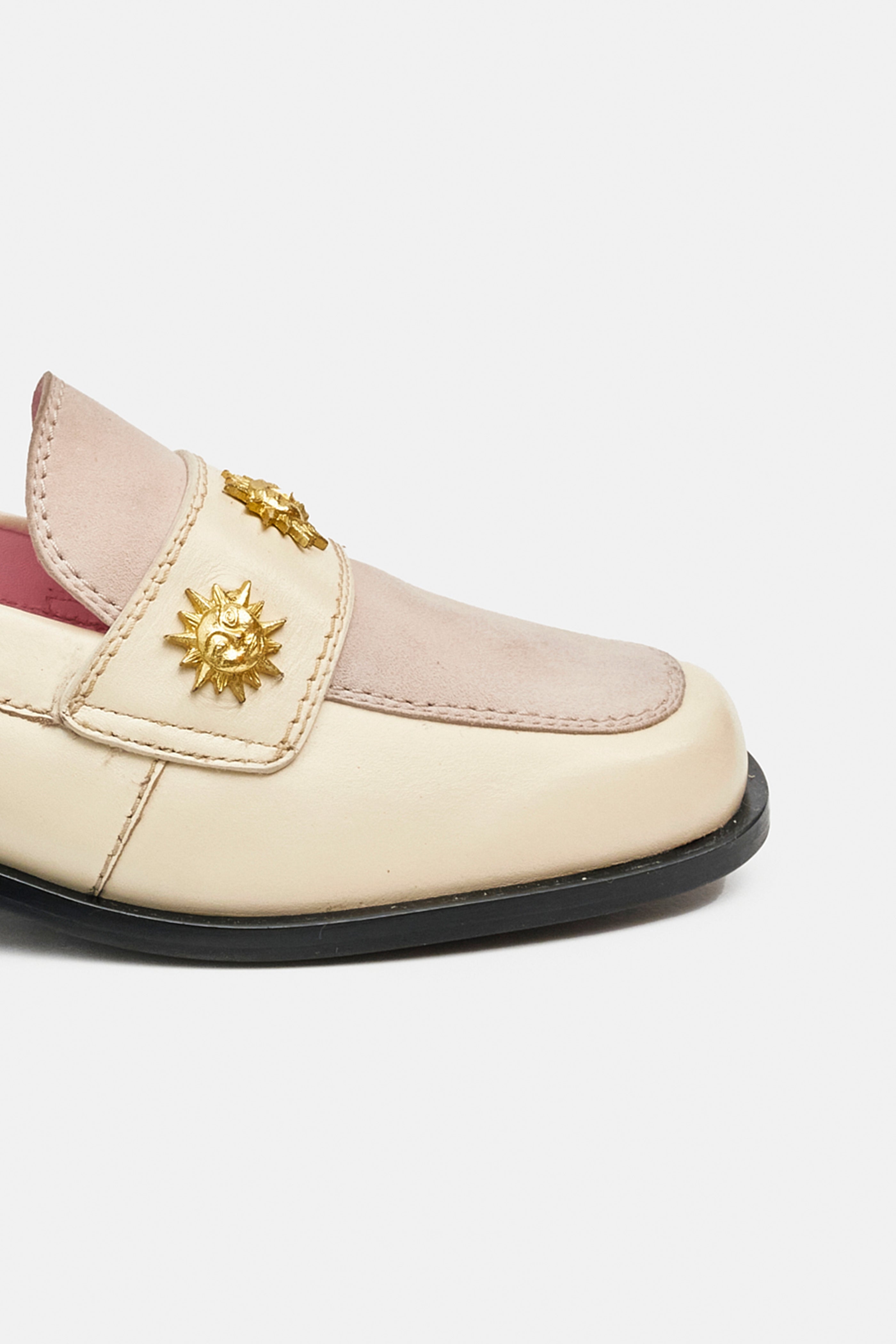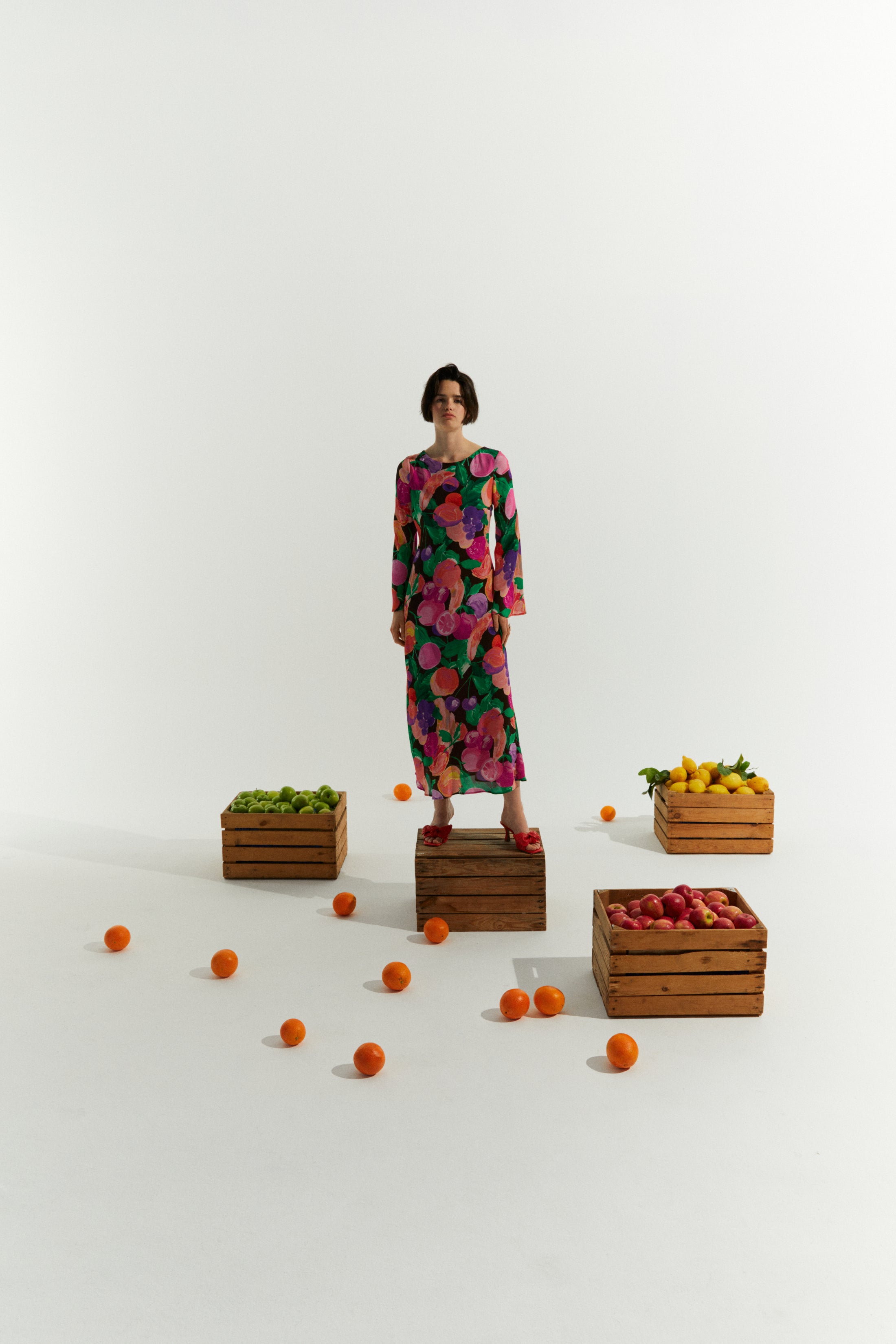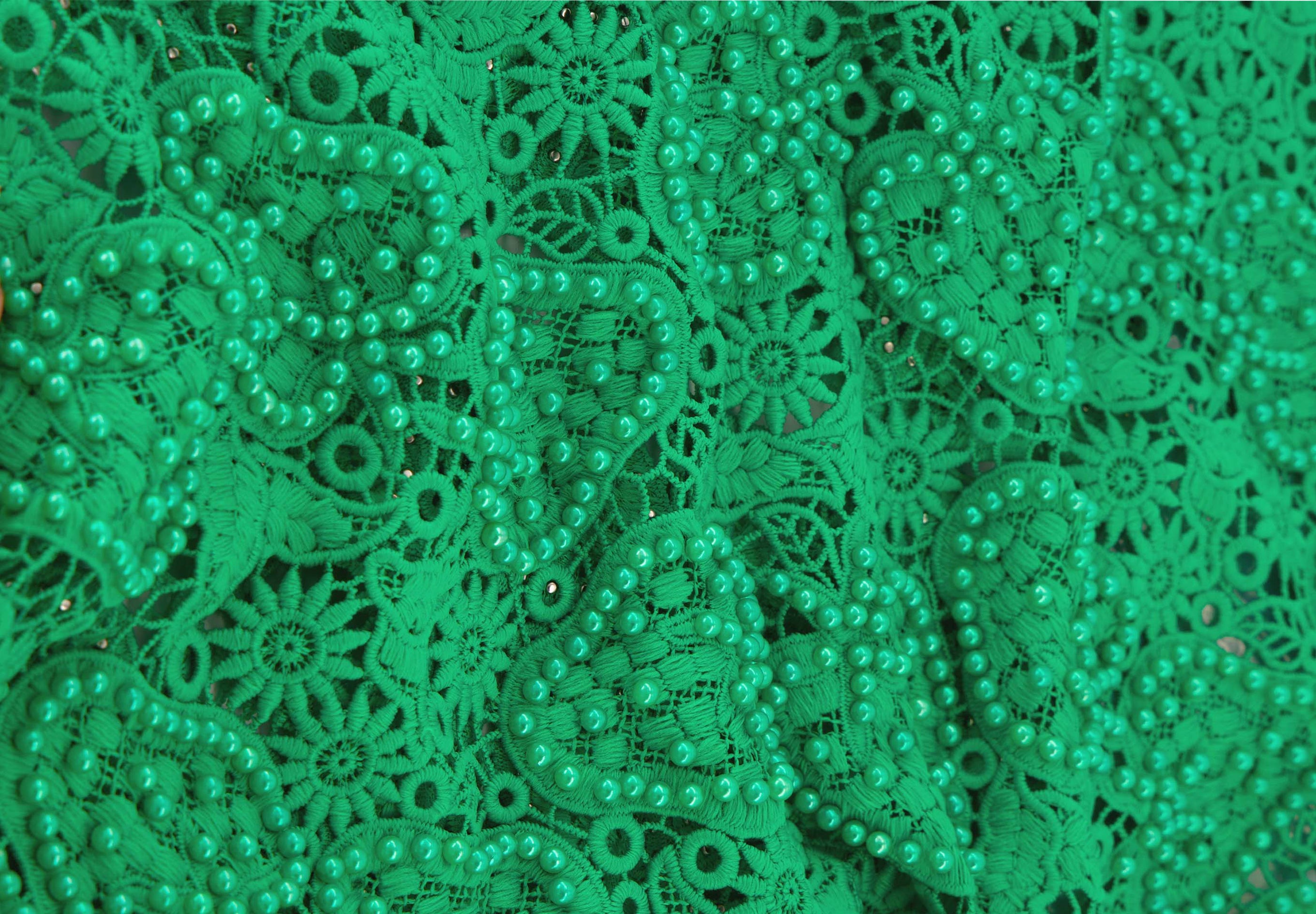
Materials
VISCOSE (CONVENTIONAL)
Viscose is a fibre made from wood pulp, for example from eucalyptus, beech, or pine trees.Viscose is known for its soft and silky feel and breathability. P.s it’s a durable alternative to silk.
CERTIFIED VISCOSE (FSC)
FSC Viscose is a more responsible type of viscose fibre, made from sustainably sourced wood pulp. The Forest Stewardship Council (FSC) certification ensures that the forests are sustainably managed. FSC Viscose is a true multitasker - soft, silky, breathable and sustainable!
LENZING™ ECOVERO™
Ecovero is a more responsible type of viscose fibre. It’s made using a closed-loop production process, using 50% less water and 50% less energy compared to conventional viscose production. Ecovero is certified by the EU Ecolabel, which ensures that the product meets strict environmental standards and we love it for its high quality, soft and silky texture that drapes well.
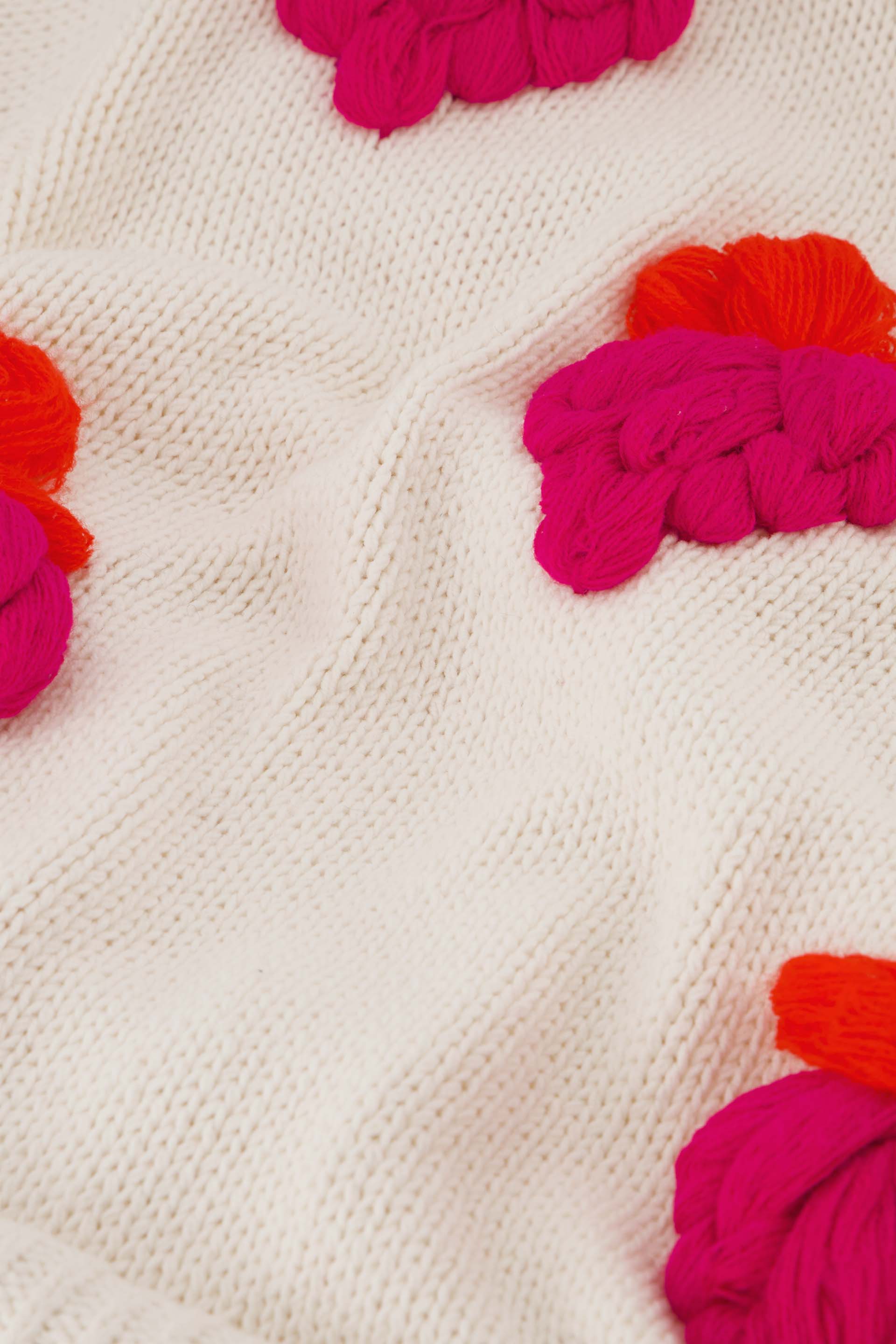
BEMBERG™ BY ASAHI KASEI
Bemberg™ is a brand of cupro, regenerated cellulose fibre, produced by Asahi Kasei. It’s a more responsible type of viscose, made from cotton linters (the fuzz around the cottonseed) which is a by-product of the production of cottonseed oil. Bemberg™ uses a closed-loop production process, so the chemicals and water used in the process are recycled and reused, saving emissions and water usage, and lowering the environmental impact of the production compared to conventional viscose. Bemberg is soft and silky, moisture absorbent and durable.
TENCEL™
TENCEL™ is a brand name for a type of lyocell fabric, which is made from sustainably sourced cellulose fibres.
TENCEL™ is FSC or PEFC certified to ensure that the wood pulp used to create the fabric comes from responsibly managed forests. Additionally, TENCEL™ is certified by Oeko-Tex, which verifies that the fabric is free from harmful substances. TENCEL™ is also certified by the EU Ecolabel, which ensures that the product meets strict environmental standards.
TENCEL™ is known for its softness and smooth texture, great strength, efficient moisture absorption, and gentleness to skin. Comfortable and chic - what a powerhouse combination!
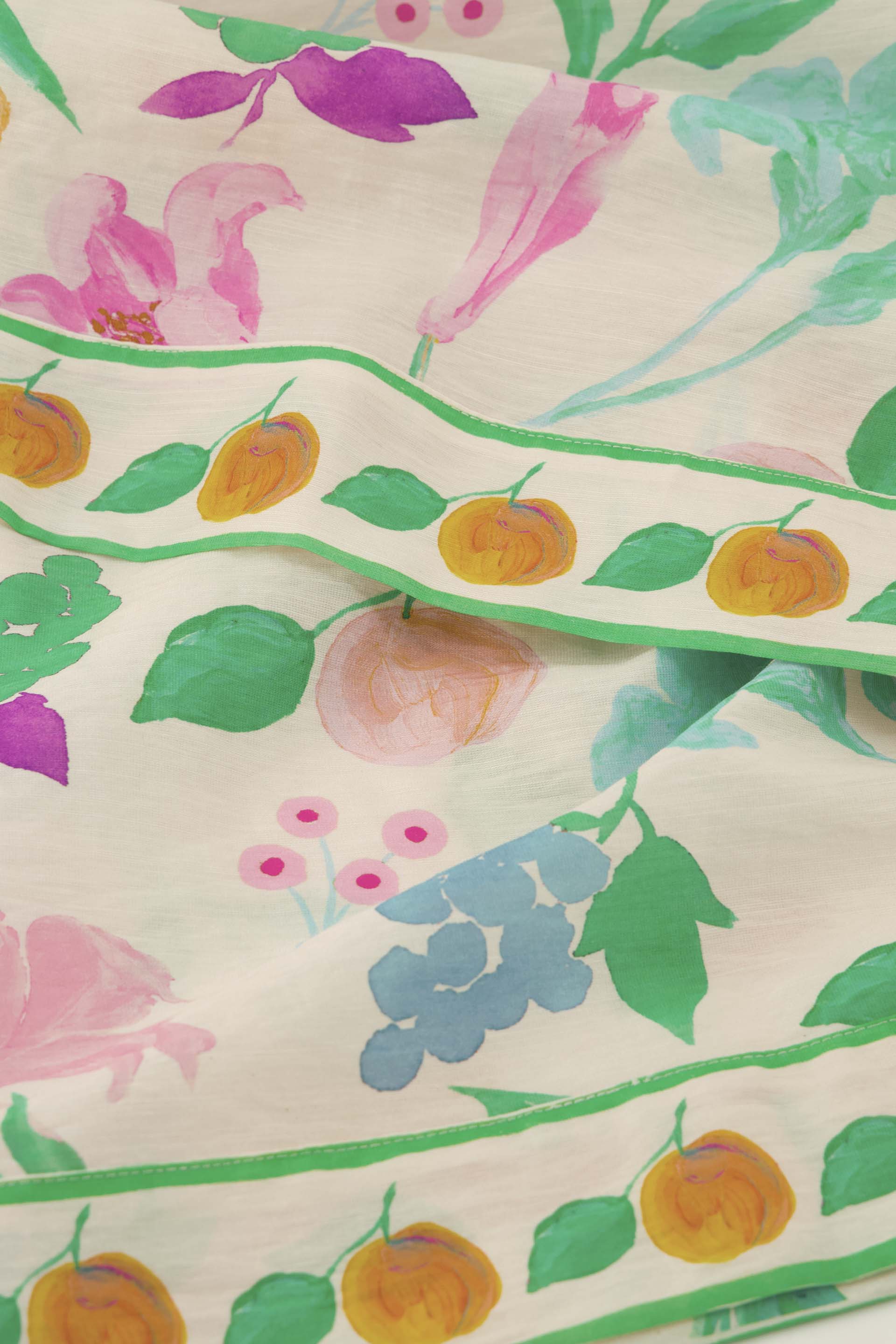
COTTON (CONVENTIONAL)
Cotton is a natural fibre. It’s known for its softness, comfort, durability, and moist absorption level, making it a great companion for your summer wardrobe.
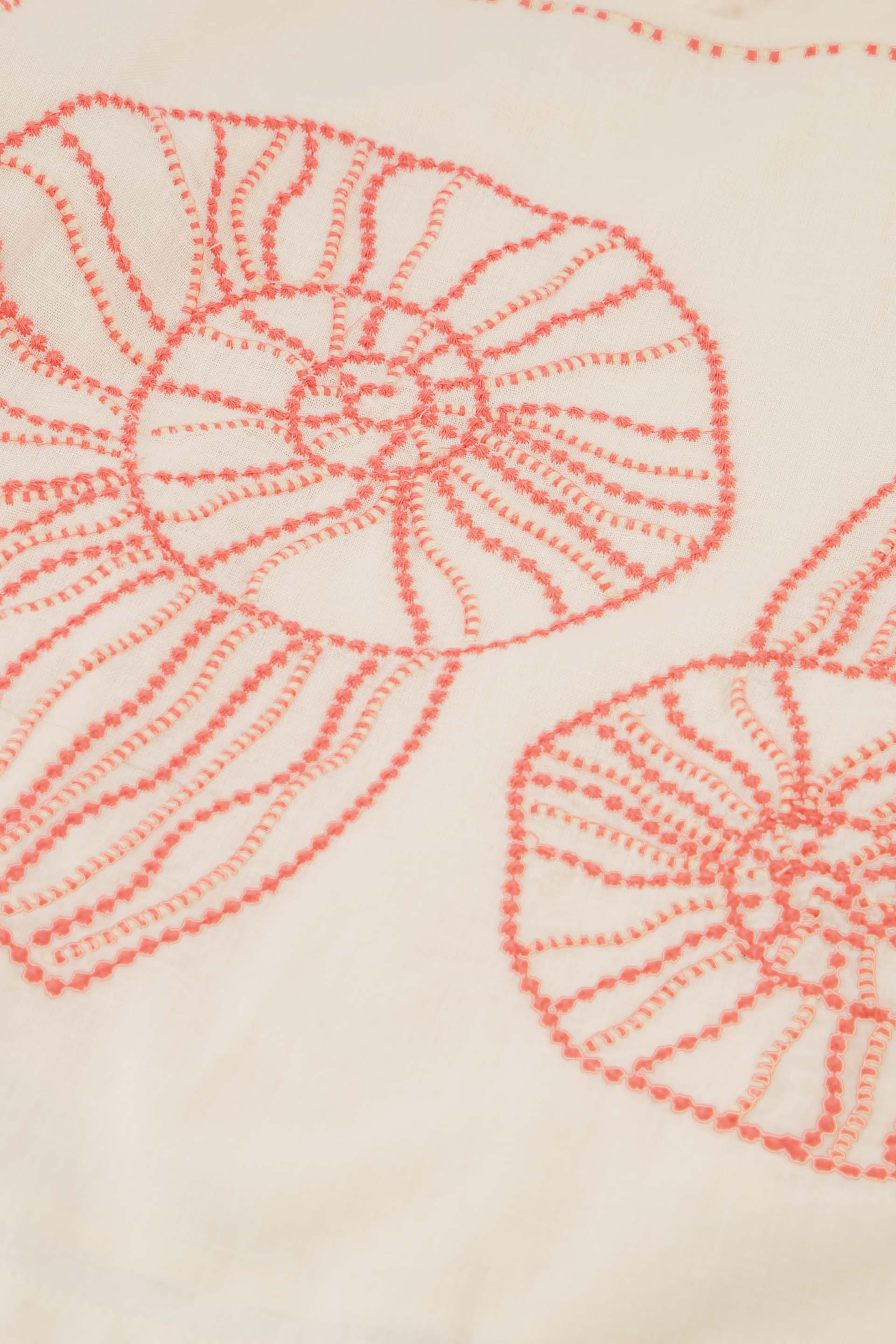
POLYESTER (CONVENTIONAL)
Polyester is known for its durability and wrinkle resistance, which means it’s also travel friendly. Polyester is a synthetic fabric that's usually derived from petroleum, a non-renewable resource.
RECYCLED POLYESTER
Recycled Polyester is made from pre-consumer and post-consumer polyester waste, such as scraps and offcuts from carpet or interior textiles production or old polyester dresses. These materials are made into new yarns, which can be used to create new polyester products. Recycled Polyester is durable and wrinkle resistant.
RPET (IN COLLABORATION WITH WASTE2WEAR)
RPET is a polyester fabric made from recycled plastic bottles and other post-consumer plastic waste. It helps reduce waste in landfills and oceans, and it reduces the need for virgin materials. The production of RPET uses 70% less energy consumption, 86% less water consumption, and has a 75% lower carbon footprint compared to regular polyester fabrics. RPET is known for its durability and wrinkle resistance.
Curious to know how many bottles your item was made from? Check the care label of an RPET garment and you’ll find out!
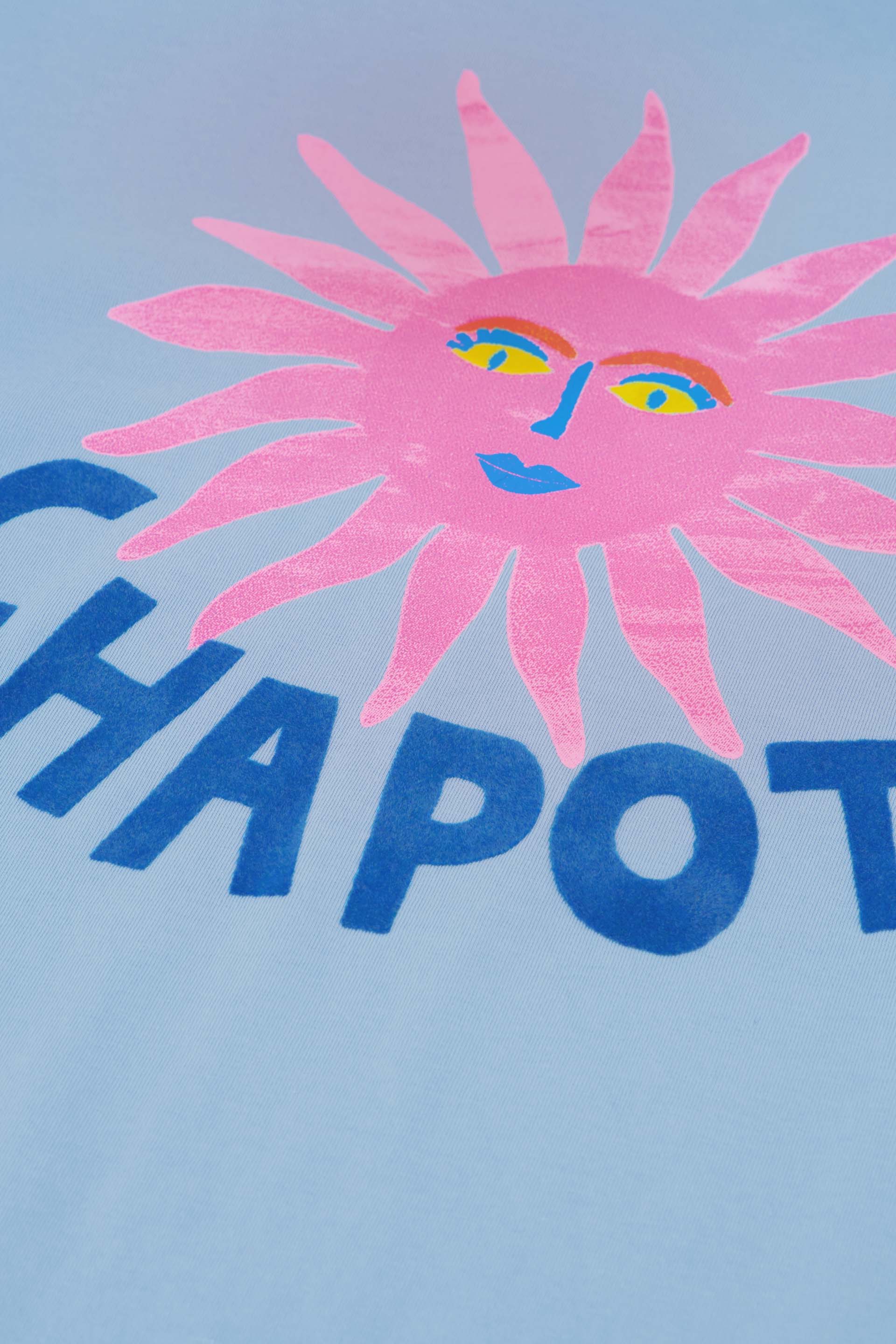
LEATHER
Soft, supple, long-lasting and timeless - leather has a long history in the accessories and footwear arena. It’s a natural fabric made using tanned animal skin. We continue to investigate more responsible alternatives, but it’s important to note that faux leather or vegan leather also come with complexities due to their production techniques or level of durability.
WOOL
Winter warmer and timeless wardrobe classic - wool is known for its durability, insulation, and moisture absorption. It comes from many different animals, such as sheep, goats, and alpacas. We’re looking into alternatives such as the use of certified and recycled wool.
